The high cost of fertility treatment leads some to find donors on social media, even though it’s risky and could be illegal.
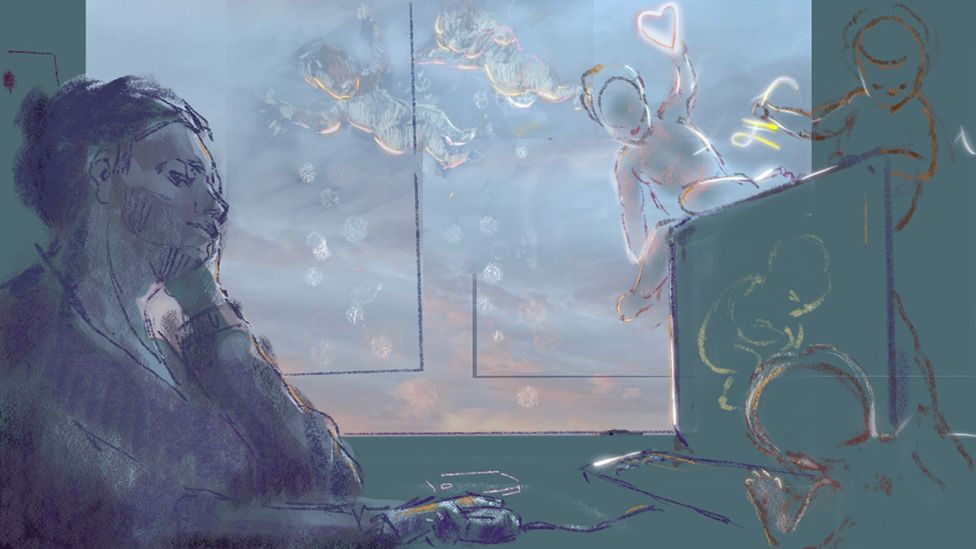
If couples are unable to get fertility treatment on the NHS they sometimes use unregulated Facebook groups to find men willing to sell or donate their sperm. The Human Fertilisation and Embryology Authority says this carries significant risks – and it could also be illegal – but two women told the BBC they felt that they had no choice.
When Chloe and her partner had been trying to get pregnant for a year without success, their family doctor referred them to the local NHS fertility clinic. Tests showed that there was a problem with Chloe’s partner’s sperm and they would have to use a donor to have a baby.
The clinic gave them a list of sperm donors, but Chloe says there was only one available donor in their ethnic group who had not been chosen by other families. Excited and nervous, they embarked on their first round of IVF in October 2017. It didn’t work.
The clinic suggested they move on to another form of fertility treatment, ICSI, where sperm is injected into the eggs. The treatment is more expensive than IVF and because they had already had one round of NHS fertility treatment they would have to pay for it themselves.
“We’ve got that disappointment that it hadn’t worked, and if we wanted to try again, we would have to find thousands of pounds. We were getting married in three months so we’d ploughed all our money into that. It was just something we couldn’t afford,” says Chloe.
For a year, she battled with the clinical commissioning group to get more treatment on the NHS, arguing she hadn’t been given a fair chance. But in the end, it was a firm “No”.
It was then her husband suggested they should look for a sperm donor online.
She joined several groups on Facebook, using a fake name so her family and friends wouldn’t find out what she was doing, and found a potential donor.
Once he had provided her with his medical and family history, and sexually transmitted infection checks, she arranged to meet him in a car park near his home, miles from where they lived.
“It sounds really not very ideal,” says Chloe. “He would prepare the sample, meet up, hand it over. And then I would go in the toilet and do what I needed to do.”
Chloe’s husband came along to make sure she was safe, but waited in the car. They did this six times. Chloe did get pregnant once, but she miscarried.
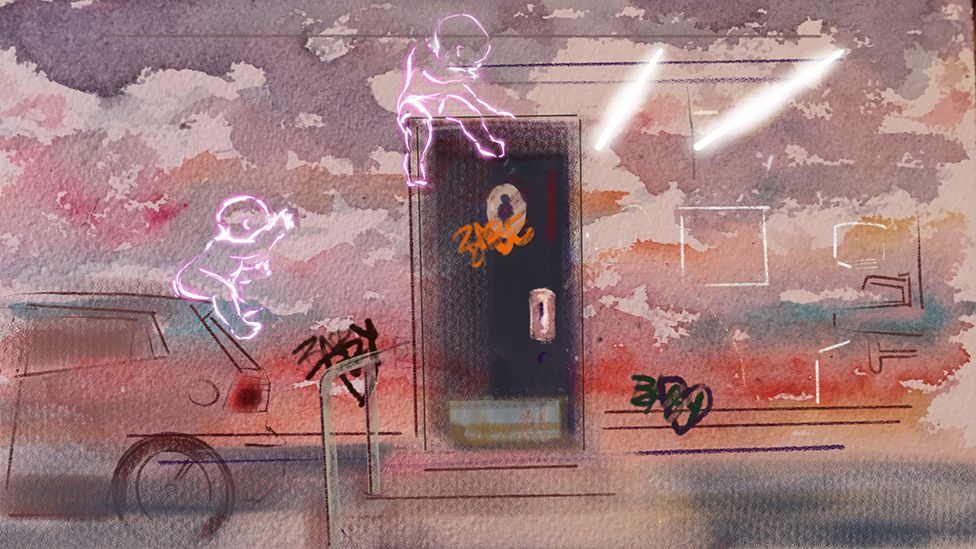
On every occasion they paid their donor £50 for the sperm and £10 for travel expenses.
Regulated clinics compensate donors for their travel expenses up to a maximum of £35, but it is illegal for them to pay donors for their sperm, according to the Human Fertilisation and Embryology Authority (HFEA), the UK’s fertility regulator.
When an individual rather than a business provides what the Human Fertilisation and Embryology Act 1990 refers to as “non-medical fertility services” the rules are less clear, according to the HFEA. A person who sells sperm for £50 a time may or may not be considered a business under the law. No court cases have yet been brought that would test this, the HFEA says.
When the pandemic hit and travel restrictions made it more difficult to meet up, Chloe and her husband found a different donor, again via Facebook.
This one travelled to her home, which Chloe says made her feel more relaxed.
“I could just do it in my own time. There was no need to rush, not in a toilet where I needed to get in and get out. It was just a bit more comfortable because it was in my own environment.”
And they were successful – Chloe is now pregnant.
“We’re so, so happy,” says Chloe. “We’ve been on this journey for a long, long time. And we’re just so grateful now that we’re able to have a child. We have a family, and that’s something that we’ve wanted for so long.”
They haven’t told their family or friends that they used a donor, partly because they don’t want people to know that Chloe’s husband is unable to have children, but also because they know “there are going to be people out there that think it’s really wrong”.
Out of “courtesy” they have told the sperm donor that she is pregnant, but Chloe says that as far as she is concerned he has no rights to the child, and her husband’s name will be on the birth certificate.
Chloe’s donor previously made donations via a regulated clinic, but they restrict donors to a maximum of 10 families and he has already reached this limit. He has had three more children that she knows of with women contacted via social media.
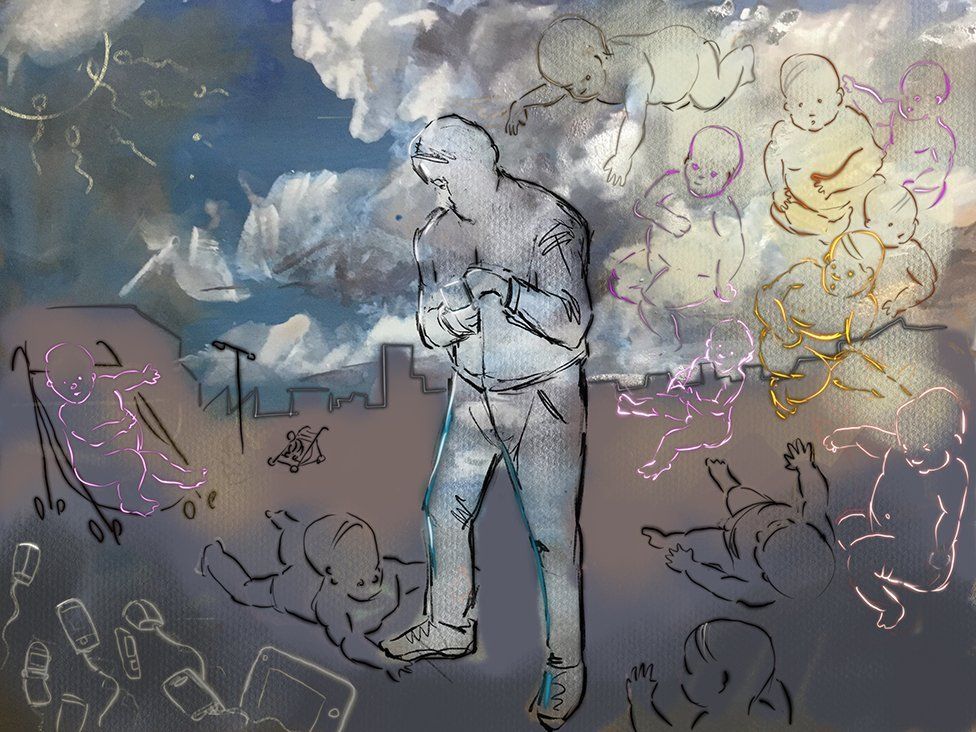
Under a law introduced in 2005, children conceived from donated sperm have the right to contact their donor at the age of 18, but Chloe and her husband have decided not to tell their child how he or she was conceived, unless there is a medical reason.
“They don’t need to know. We wanted a child, and this was our only option,” Chloe says. “I feel that people shouldn’t be put in this position, to go down this route, but there isn’t much option if you can’t afford IVF.”
In the end Chloe had a good outcome, but she knows it wasn’t without risk.
Through her Facebook groups she has heard of sperm donors who suddenly wanted to keep in touch or be part of the child’s life, after finding out about a positive pregnancy. And she knows of women who have been asked to have sex instead when the donor comes to hand over the sperm.
The groups try to keep tabs on dodgy donors.
“There’s risk lists, names of people to avoid, [but] they have multiple accounts,” says Chloe.
Lorraine, another user of these closed Facebook groups, has had some bad experiences with donors.
She was 38 when she and her female partner decided to start a family, but same-sex female couples are not entitled to NHS treatment unless they have had at least six cycles of artificial insemination and failed to get pregnant – rules vary from one clinical commissioning group to another.
Private clinics were not an option for Lorraine and her partner, however. “It was far, far too much money, it would take me years to save up,” Lorraine says. Obtaining sperm from a private bank costs between £600 to £1,300 pounds per sample, depending on the country of origin.
So Lorraine turned to Facebook, specifying on her profile that she wanted AI – artificial insemination – only.
Tracking her cycle, to work out when she would ovulate, she started having conversations with the 20 or so potential donors who got in touch.
“Some of them are lovely. Some of them are not. Some of them genuinely want to help you. And some of them end up being really sleazy,” she says.
On one occasion after a donor promised to help he said, “I think you’re beautiful,” and asked for sex instead – so-called “natural insemination”. He then sent an inappropriate photo.
Other donors were just stringing her along. She would spend hours getting to know them, having long chats on Facetime and gathering all the necessary medical information, but when she was ovulating and needed their help they would stop responding to messages.
“All of a sudden they would ghost you, right when you need it,” she says.
“You feel so panicky that you’re texting them every hour on the hour. ‘Hello, are you there?’ and then all of a sudden they will block you.”
This happened several times. “I was heartbroken, I actually wanted to give up because I couldn’t cope with it,” she says.
Then one night, the day before she was due to ovulate again, Lorraine was scrolling through Facebook when she found a man who had posted a lengthy explanation of why he wanted to donate. His brother was gay and unable to have children, which spurred him on to help others in this situation.
Lorraine got in touch and this time he was the one asking all the questions, which she says was “refreshing”. He had strict rules: he would only donate to established couples, non-smokers, no drug users and so on.
After chatting for three hours, Lorraine confessed she was due to ovulate in the next 24 hours.
The next day he got on a train from London. He did not want to be paid, and the couple only refunded his £36 train fare.
After three attempts Lorraine found out she was pregnant and she and her partner now have an eight-month-old daughter. She sent the donor a photo and with her permission he uploaded the fact she had given birth on his Facebook profile.
He does this every time he has a successful outcome. That’s how Lorraine knew he’d had 14 other children by the time she had her baby. Since then she says there have been three more.
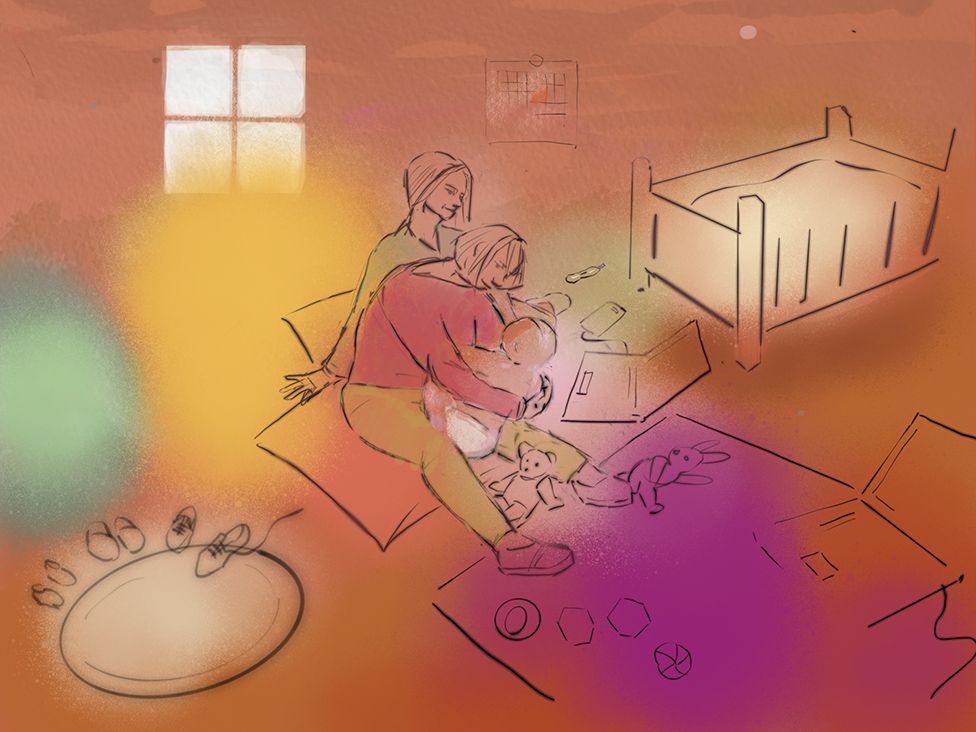
They plan to tell their daughter that “a special gentleman was helping other families like us”. She has a picture of him as a child which she plans to give her daughter, along with the name he gave, even though she knows it’s made up.
They signed a 16-page written agreement with the donor, saying that he doesn’t want anything to do with the baby, and that they won’t pursue him for any money.
However it may not stand up in court.
“It hasn’t gone through any lawyer,” says Lorraine.
Sally Cheshire, who chairs the HFEA, warns there is currently no law to protect anyone opting into such an agreement.
“If consent is not correctly taken and at the right time, then parenthood status may not transfer and the donor will still be the father in the eyes of the law, with all the parental and financial responsibilities that brings.”
She also says that using a donor who hasn’t undergone comprehensive health checks carries significant risks.
“UK regulated clinics are required to test the sperm for a wide range of diseases and genetic illnesses that even a conscientious unregulated donor might miss, putting mother and baby at risk.”
The BBC asked the HFEA how many times over a five-year period it had reported concerns to police about people buying or selling sperm outside a regulated clinic. The HFEA said it held no information relevant to the request.
In a separate Freedom of Information request, the BBC asked all police forces how many times in the last five years anyone had reported concerns that individuals were breaking the law by buying or selling sperm without a licence. Over 90% of forces replied – and all of them said they had received no such reports.
A Facebook spokesperson said: “We allow people to discuss sperm donation on Facebook, but we work closely with law enforcement to remove content that breaks local law.”
Lorraine feels strongly that the cost of sperm in private clinics is too high and that it should be available on the NHS.
“To me, it feels like it’s a money-making scam, which is why people meet up with guys in toilets. Because we haven’t got thousands of pounds to go to a clinic, we’re having to revert to disgusting things.”
The BBC asked the NHS to comment on the difficulties some people face accessing fertility treatment. A spokesperson said: “Ultimately these are legally decisions for clinical commissioning groups, which are under an obligation to balance the various competing demands on the NHS locally while living within the budget parliament has allocated.”
Chloe is a pseudonym
Illustrations by Chris Vallance
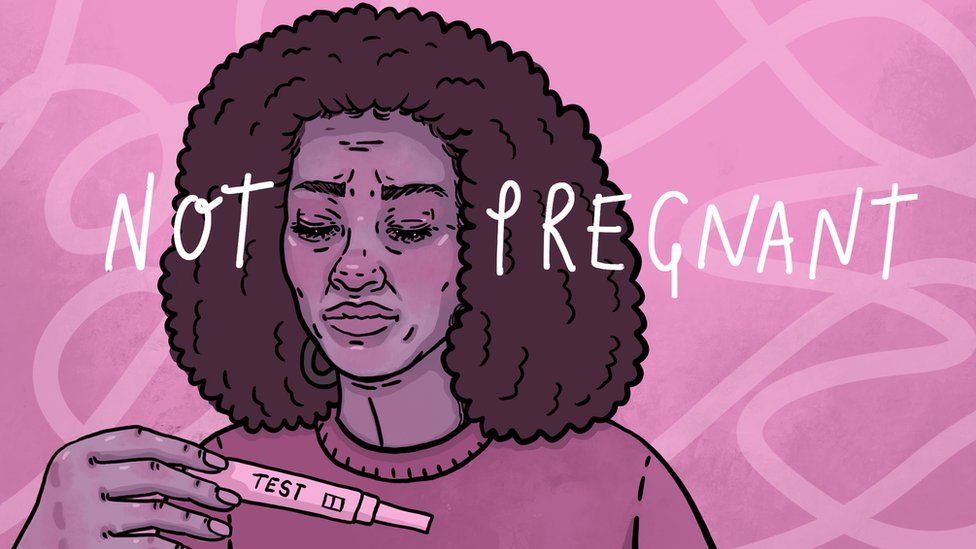
image copyrightNadia Akingbule
When Natasha and her husband had difficulty conceiving a child, doctors gave her two pieces of bad news. The first was that she would need to find a donor egg. The second was that Afro-Caribbean eggs are rarely donated. But she hasn’t given up hope.